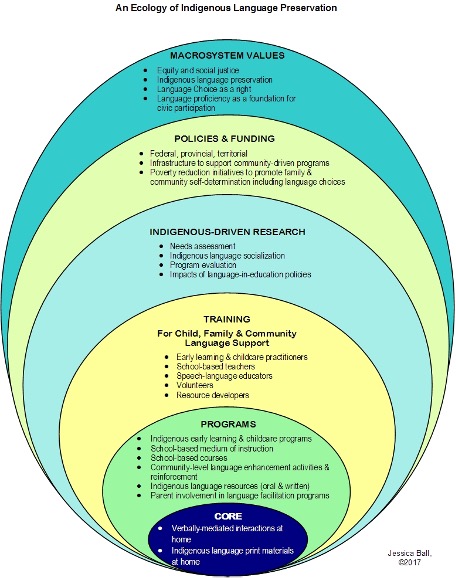Through collaborations with early childhood care practitioners in First Nations, reports in this project area highlight:
- First Nations practitioners' goals for cultural transmission in children's programs and how they set out to achieve these goals
- Program elements that First Nations practitioners in early childhood programs identify and define as ‘Indigenous cultural elements’
- The role and cultural influence of First Nations child-care practitioners on children's cultural programming and development
- Impacts of cultural childcare programs on children's cultural literacy and identity
- Canada’s cold climate for Indigenous languages, as a country that recognizes only two colonial language (English and French) as ‘founding languages’ while most Canadians are monolingual
- Policy reforms needed to support an ecologically comprehensive strategy for Indigenous language revitalization that draws on and goes beyond formal schooling to include support for both Indigenous and non-Indigenous adults to become proficient speakers of an Indigenous language.
Work within this project area supported the launch of Canada’s first, nationally-networked action research project: NEȾOLṈEW̱ (“one mind, one people” or “doing things as one”).
https://netolnew.ca/ Led by Dr. Onowa McIvor at the University of Victoria, NEȾOLṈEW̱ builds on existing networks of Indigenous organizations and those already working at the centre of language revitalization. The project aims for realistic language revitalization outcomes through sharing, expanding, and evaluating Indigenous adult language learning resources, programs, and initiatives. By strengthening capacity among Indigenous people and maximizing the resources, the project contributes to nation‐wide Indigenous resurgence and revitalization of the Indigenous languages of Canada.
